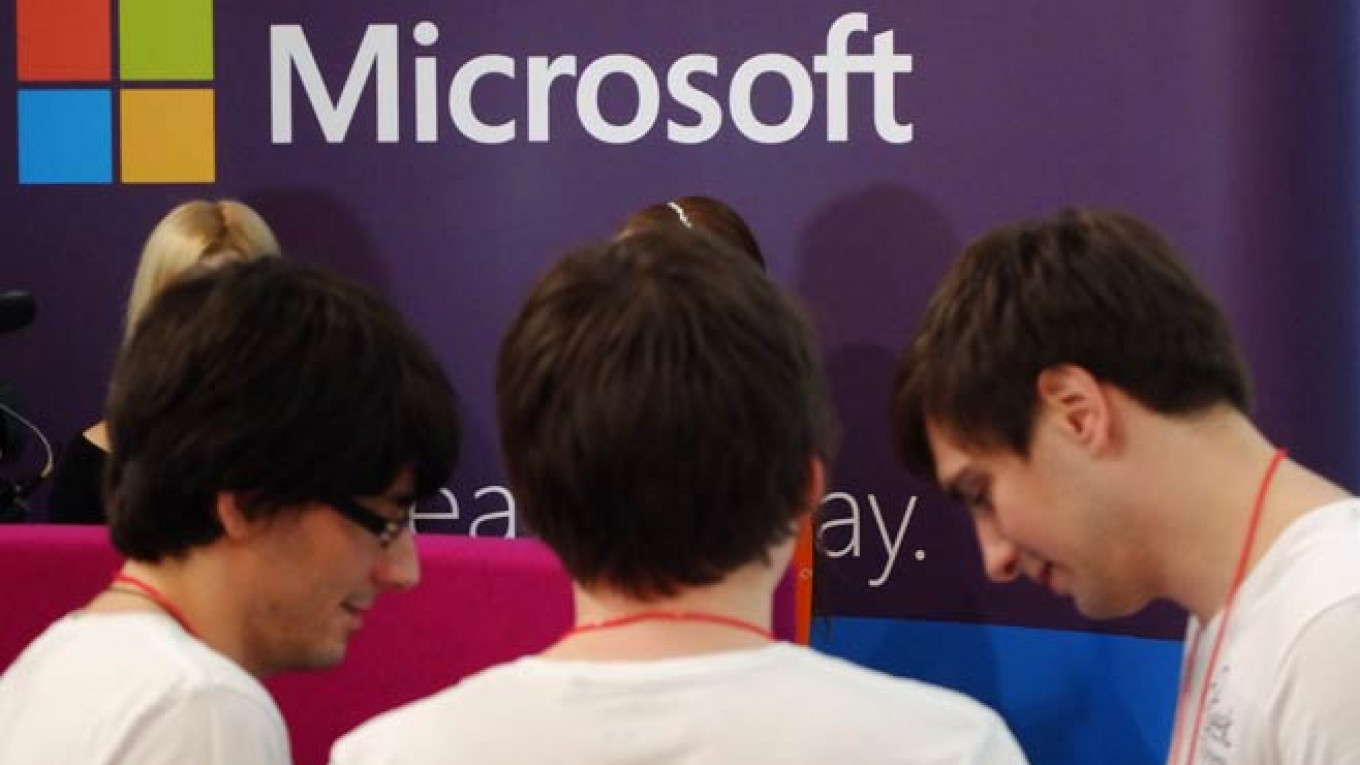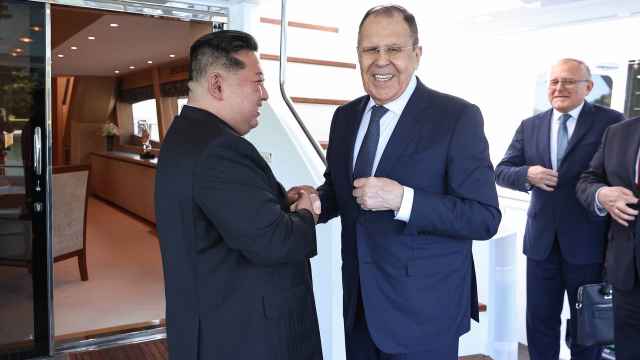Leading U.S. IT companies Microsoft, Oracle, Hewlett-Packard and others may be cutting off services to Russian banks and companies to comply with Washington's sanctions over Russia's actions in Ukraine, spreading the same political anxiety that the banking sector has experienced in recent months into the Russian IT market.
The multinational tech companies have already joined in the government sanctions against the banks and may completely cease cooperation with them, Gazeta.ru reported, citing anonymous sources in the IT departments of two Russian banks and confirmation from Andrei Chernogorov, executive secretary of the State Duma's commission on strategic information systems.
A Microsoft spokeswoman on Monday declined to comment, while Oracle and Hewlett-Packard did not respond to requests.
A source close to Microsoft's partners told The Moscow Times that the computer giant will halt its services to the 18 companies currently included on the U.S. sanctions list but will continue to work normally with all other Russian clients.
"International companies do not make decisions about whether or not to introduce sanctions and simply cannot avoid them, so they must comply with U.S. and EU legislation," the source said, speaking on condition of anonymity.
Of the four sanctioned banks who stand to lose service, Bank Rossiya, SMP Bank and Sobinbank on Monday did not respond to requests for comment. An InvestCapitalBank spokesman said that the bank "has not yet received any written notifications from IT companies."
The companies will still be able to use the software that they currently own, but "all services, and first of all consulting and technical support, will be stopped," said Maxim Andreyev, director of business applications at IT services provider CROC Inc. They will not receive updated versions of the software or corrections to any defects that may be discovered. The risks this loss could produce are low, Andreyev said, "although a lot depends on the specific software producer."
Foreign software occupies about 70 percent of the Russian market, with U.S. software dominating that share, but its penetration of the banking sector is "minimal" with the exception of a few producers, Andreyev added. The largest problem may arise with databases, as Oracle's products "are essentially the standard in the banking sector," he said.
Amidst the current poor economic climate, the news may push Russian clients toward purchasing domestic software. "Clients do not want to be hostages of geopolitical games, so refusals to purchase software and outsourced projects based on foreign infrastructure will follow," Andreyev said.
Olga Uskova, president of the state-sponsored National Association for Innovation and the Development of Information Technologies, recently told RBC that the Russian IT community is already convinced of the need to replace foreign products.
"The imposition of sanctions have shown us what country the master switch is in, and that it can be switched off at any moment," Uskova said. Her rhetoric echoed the ongoing state campaign to create an independent Russian national payment card system, spearheaded by President Vladimir Putin, which took off after Visa and MasterCard halted service to Bank Rossiya and its unit Sobinbank following the first round of U.S. sanctions in late March.
The banks will be able to replace any U.S. software they employ with products produced domestically, with free software, or with products from other countries, said Valentin Makarov, president of the Russoft software developers association.
"If [Russian financial software developer] Diasoft is one of the world leaders in the sphere of core banking and retail banking, then there is no doubt that they and others will be able to very quickly develop alternative programming solutions for the entire spectrum of banking software," Makarov said.
Contact the author at [email protected]
A Message from The Moscow Times:
Dear readers,
We are facing unprecedented challenges. Russia's Prosecutor General's Office has designated The Moscow Times as an "undesirable" organization, criminalizing our work and putting our staff at risk of prosecution. This follows our earlier unjust labeling as a "foreign agent."
These actions are direct attempts to silence independent journalism in Russia. The authorities claim our work "discredits the decisions of the Russian leadership." We see things differently: we strive to provide accurate, unbiased reporting on Russia.
We, the journalists of The Moscow Times, refuse to be silenced. But to continue our work, we need your help.
Your support, no matter how small, makes a world of difference. If you can, please support us monthly starting from just $2. It's quick to set up, and every contribution makes a significant impact.
By supporting The Moscow Times, you're defending open, independent journalism in the face of repression. Thank you for standing with us.
Remind me later.






